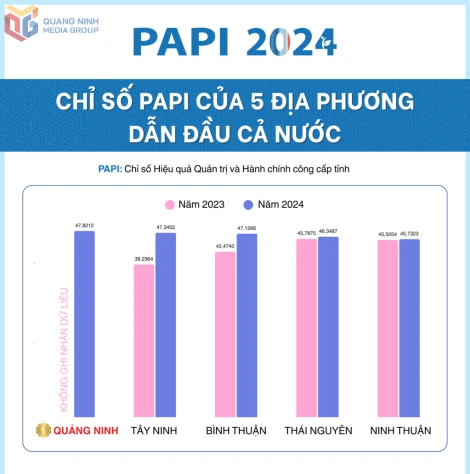Germany has long had a much higher proportion of young people without a high school diploma or vocational training than other European countries, and now it is becoming a real problem.

The number of young people dropping out of school without receiving a degree has increased to 12% in Germany. Illustration photo: GI
In the fall of 2023, more than 1.7 million job vacancies were filled. The demand for skilled workers in 200 different occupations far exceeded the number of applicants, with the demand for medical and nursing staff, construction and IT workers, professional drivers, teachers, etc. being very high.
At the beginning of 2024, around 4.8 million people who were able to work were receiving state unemployment benefits. More than half of them had no vocational training. According to the German Federal Employment Agency, their chances of finding a job are slim. Another notable figure is that 25% of the long-term unemployed have no qualifications at all.
Compared to the past, Germany's current education system has attracted more young people to complete high school and university, but there is still a large number of graduates who do not meet the minimum requirements set by employers.
For years, international organizations such as the Organization for Economic Cooperation and Development (OECD) have criticized Germany for not taking significant measures to reduce the number of people without degrees.
Every year, the European Statistical Office (Eurostat) collects data on the number of young people aged 18 to 24 in European countries who have dropped out of school or are not enrolled in any vocational training. As a result, Germany ranks fourth out of 27 EU countries.
The dropout statistics also include young people who have completed the most basic level of compulsory education in Germany. In Germany, children study together for four to six years before being sorted into different secondary schools based on their academic performance.
The school system in each German state is different. There are dropouts in every state, with around 52,000 young people dropping out of school in 2022 alone.
According to a study by the German Federal Institute for Population Research (BiB), many of the dropouts are young people with a migrant background. In 2022, 3% of 25-year-old German men and 2% of 25-year-old German women did not have a high school diploma, lower than the 12% of men and 10% of women of the same age with a migrant background.

Germany is experiencing a nationwide shortage of teachers, social workers and nursery staff. Photo: DPA
Education experts have long criticised Germany’s school system for leaving too many young people behind. In the latest Pisa tests, which compare the reading, maths and science skills of 15-year-olds around the world, German students scored the lowest on record.
The drop in achievement is blamed on school closures during the Covid-19 pandemic. But the more important cause is educational inequality that has persisted for years.
“In Germany, academic success still depends on social background,” said Anja Bensinger-Stolze, board member of the Education and Science Trade Union, which said those without a good learning environment at home were particularly affected.
“Lack of lessons, under-qualified teachers and lack of support systems mean their educational opportunities are increasingly limited,” said Ms Bensinger-Stolze.
In addition, the lack of German language skills among children is a problem that begins at preschool age. Currently, one in five children between the ages of three and six do not speak German at home. In the states of Hesse, Berlin and Bremen, the proportion is as high as one in three.
This makes it all the more important for children to attend kindergarten. However, according to the German government's education report, only 81% of children with a migrant background do so.
If children cannot speak German when they start school, they may fall behind from the start – which can cause them to lose motivation to learn. What is needed is individual support and the use of social workers and education specialists. But everything is in short supply, from kindergartens to teachers.
Germany currently has only about 350,000 day care facilities, with a shortage of about 14,000 teachers, and this number is likely to increase.
“The gap between demand and supply of teachers will increase to 56,000 full-time positions by 2035,” said Bensinger-Stolze. “Unfortunately, politicians have been ignoring the situation for too long. So it is very difficult to improve the situation in the short term.”
This is bad news for students who need a lot of support. Some states have implemented “Effective Learning” programs aimed at helping students who are at risk of failing after eighth grade. But these programs, which are designed to reduce the number of early dropouts, are also under threat.
There are many students who have difficulty interpreting poems or understanding trigonometry, but have talents and skills in a completely different area of the curriculum. That is why former German Minister of Labor and Social Affairs Andrea Nahles proposed starting career guidance in schools as early as the fifth grade.
Hoai Phuong (according to DW)
Source


![[Photo] General Secretary To Lam meets with veteran revolutionary cadres, meritorious people, and exemplary policy families](https://vstatic.vietnam.vn/vietnam/resource/IMAGE/2025/4/15/7363ba75eb3c4a9e8241b65163176f63)

![[Photo] Welcoming ceremony for Prime Minister of the Federal Democratic Republic of Ethiopia Abiy Ahmed Ali and his wife](https://vstatic.vietnam.vn/vietnam/resource/IMAGE/2025/4/15/77c08dcbe52c42e2ac01c322fe86e78b)
![[Photo] Air Force actively practices for the April 30th celebration](https://vstatic.vietnam.vn/vietnam/resource/IMAGE/2025/4/15/16fdec3e42734691954b853c00a7ce01)
![[Photo] Ho Chi Minh City after 50 years of national reunification through buildings and symbols](https://vstatic.vietnam.vn/vietnam/resource/IMAGE/2025/4/15/a224d0b8e489457f889bdb1eee7fa7b4)

























































































Comment (0)